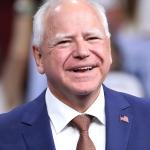The Adventurous Lectionary – September 10, 2017 – The Fourteenth Sunday after Pentecost
Bruce G. Epperly
Exodus 12:1-14
Psalm 149
Romans 13:8-14
Matthew 18:15-20
This week’s scriptures are spiritually ambiguous. They raise issues of divine violence and exclusion as well as God’s protective safety and the preservation of community. Like many important religious feasts, the celebration of Passover is shrouded in mystery and ethical ambiguity. On the one hand, God delivers the Hebrew people from oppression in Egypt. Those who follow Moses’ directions escape the plague, and soon will sojourn to God’s promised land. On the other hand, every Egyptian first born child and animal will be stuck down by divine pestilence. Like most “revolutions,” the Passover leaves collateral damage. Moreover, in our theologically and ethically-diverse culture, where do passages that assume exclusion fit in? What boundaries or dividing lines shall we have in congregational life in the context of postmodern relativity, which often leads to selective relativism as well as judgment?
It is appropriate that the children of Israel celebrate the Passover just as people in the USA celebrate July 4th. Political liberation is worth celebration. Still, what shall we say about the character of a god who mercilessly strikes down innocent children and animals? Did they deserve horrific illness and death because of Pharaoh’s hardheartedness? As a grandparent of young children, I must protest such divine activity even if it is liberating. Such unilateral violence has been justified throughout the ages: others’ lives are expendable to achieve our righteous and political goals. We struggle with these attitudes in the words of a dictator who threatens to destroy American territories and a president who promises fire and fury and destruction beyond what the world has previously seen. Military objectives may be achieved but at what cost to civilians and the environment?
Can we fully trust such a brutal god, even if God’s brutality is to liberate the oppressed? Moreover, does God then and now act so directly and unilaterally to achieve God’s will in the world? Can we today discern God’s mighty hand this clearly, or does God work relationally through the typical interplay of cause and effect? Did God hate the children of Egypt – or Jericho, for that matter – that their deaths meant nothing to God?
We can rejoice at deliverance or the achievement of an armistice, but also regret the cost in human and non-human life. The victory over Egypt reminds us of the atomic fire over Hiroshima and Nagasaki: the bombing ended the war, may have saved lives overall, but it also tortured the innocent and ushered in the age of mutually assured destruction and fear of terrorist smart bombs. Today, the polarization we see in politics and culture is, in good measure, reflective of this process of dehumanization, demonization and objectification. Our political and cultural opponents are seen as vile and misguided, undeserving of moral consideration, while our cause justifies violence, dishonesty, manipulation of data, and evil depictions of those who differ from us. Sadly, we see much of this in the USA being perpetrated by Christians who believe in the absolute rightness of their cause!
Psalm 149 invites us to sing a new song as we remember God’s deliverance of God’s people. Like an earthly sovereign, God puts to flight all God’s foes, and strikes fear in the hearts of opposing rulers. Again, while there is comfort to be found in knowing that God is on our side, can we truly love a violent deity, even when divine violence supports our cause? Yes, we can rejoice at God’s violence on our behalf and the destruction of our enemies, but there is a little voice within that whispers, “Could God turn on us and destroy us with the same righteous anger?” The god celebrated in this Psalm is surely powerful and must be feared, but can this God be loved and trusted? As Thomas Oord suggest in the “Uncontrolling Love of God,” it is best to see love and not unrestrained power as the primary characteristic of God.
Let us put on an armor of light, put on Christ, Paul asserts. This is a spiritual but not military armor. It is the armor of character, love, and healing. Victory comes through love and self-awareness not destruction and alienation. The armor of light, like the Celtic protective encircling, surrounds us, giving us a sense of divine protection and inviting us to go beyond fear to love and scarcity to abundance. Permeated, guided, and surrounded by divine light, we can treat our opponents with grace and care. We can act according to a higher code than the culture in which we live.
There is wisdom as well as security in numbers. As the gospel suggests, conflicts are best dealt with directly and in confidence. The goal of reconciliation is not achieved by public humiliation or ostracism, but prayerful responses to what we feel to be moral infractions. We need the wisdom of others to check our own imperfect wisdom and see if it is in alignment with God’s vision, and not our own limited perspectives. While there may come an end to processes of reconciliation, our task is to go the second mile. Still this passage raises some interesting issues: Can we shun or dismiss people from our community due to bad behavior? Do we treat them as foreigners, turning our backs on them, if they fail to measure up to our community’s standards?
This is challenging in a culture whose ethics of relationships, especially private and consensual relationships, related to sexuality, for example, are in flux. As denominations consider issues of polyamory, what boundaries of ministerial or lay ethics can be considered off limits? On what basis do we judge relational behaviors or the behaviors of leaders as immoral and off-limits?
The agreement of two or three can transform the world. Yet, the gift of transformation only comes after prayerful discernment, selfless reflection, and awareness that we could be wrong. Even prayerful people and congregations can get caught up in their own perspectives and judgments of inclusion and exclusion and miss out on God’s wider vision. There is power in community spirituality, but it too is ambiguous and in need of divine guidance and wisdom.
Today’s passages invite us to explore how we creatively deal with conflict, disagreement, and otherness. What is God’s vision for responding to the imperfections of others and our own imperfections? Is there a path beyond win-lose, and its implicit violence, that we can employ to respond to potential ruptures in our communities?













